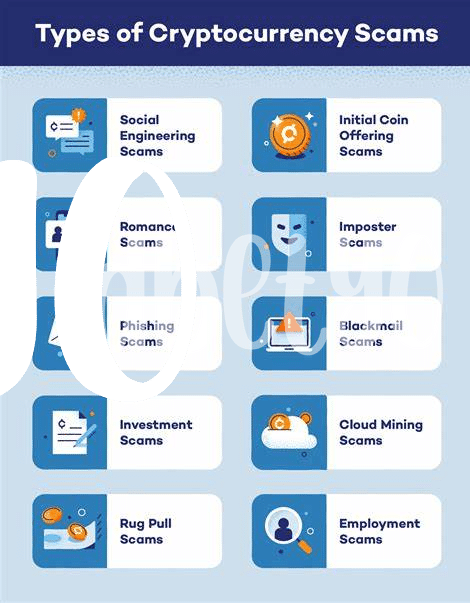Phishing 🎣

Phishing involves deceptive tactics used by scammers to trick individuals into sharing sensitive information such as passwords and private keys. Phishing attacks often come in the form of fake emails or websites that mimic legitimate platforms, luring victims to input their personal data unknowingly. These fraudulent schemes have become increasingly sophisticated, making it crucial for Bitcoin users in the Netherlands to stay vigilant and verify the authenticity of any communication or website requesting their private information. By being aware of common red flags, such as misspelled domain names or urgent requests for personal data, individuals can better protect themselves against falling victim to phishing attempts.
| Common Bitcoin Fraud Tactics | Examples |
|---|---|
| Phishing | Deceptive emails and websites mimicking legitimate platforms to trick users into sharing sensitive information. |
Ponzi Schemes 💸
Ponzi schemes operate under the guise of promising high returns to investors by using the capital of new investors to pay off the earlier ones. Participants are enticed by the allure of quick and substantial profits, only to discover later that the promised returns are unsustainable. These schemes rely on a continuous influx of new recruits to keep the facade of profitability alive, eventually collapsing once the recruitment slows down. Victims of Ponzi schemes often lose their investments and trust in financial systems, highlighting the importance of due diligence and skepticism in the realm of cryptocurrency investments. Understanding the red flags associated with Ponzi schemes, such as guaranteed high returns with little to no risk, can help individuals steer clear of falling prey to these fraudulent schemes.
Fake Exchanges 🏦

Reports show a rise in fake exchanges, posing as legitimate platforms to deceive unsuspecting investors. These fraudulent entities mimic reputable exchanges, luring individuals with promises of high returns and low fees. Once users deposit their funds, scammers disappear, leaving victims with significant financial losses and no means of recourse. It is crucial for investors to conduct thorough research before engaging with any exchange, verifying its credibility and legitimacy.
Investment Scams 🕵️♂️

Investment scams can be particularly deceptive to unsuspecting individuals looking to grow their wealth in the cryptocurrency market. These scams often promise high returns with little to no risk, luring in victims with the prospect of quick and easy profits. Through persuasive marketing tactics and false promises, scammers use investors’ trust and greed against them, leaving many with significant financial losses. It is crucial for investors to conduct thorough research and due diligence before entrusting their funds to any investment opportunity, especially in the volatile world of cryptocurrencies.
To learn more about protecting your cryptocurrency investments and staying vigilant against potential scams, visit bitcoin fraud and scam reporting in Montenegro. Keeping informed and aware of common fraud tactics can help safeguard your assets and prevent falling victim to fraudulent schemes.
Malware Attacks 🦠
Malware attacks can strike unsuspecting Bitcoin users through various methods, such as infected email attachments or malicious websites. Once a device is compromised, cybercriminals can gain access to private keys and steal cryptocurrency holdings. These attacks often go unnoticed until it’s too late, causing financial losses and a breach of trust. To protect oneself from malware attacks, it’s crucial to use reputable antivirus software, avoid clicking on suspicious links, and regularly update security patches. Being vigilant and cautious when interacting online can greatly reduce the risk of falling victim to these insidious tactics.
| Common Bitcoin Fraud Tactics in the Netherlands |
|---|
| Phishing 🎣 |
| Ponzi Schemes 💸 |
| Fake Exchanges 🏦 |
| Investment Scams 🕵️♂️ |
| Malware Attacks 🦠 |
| Social Engineering 🤖 |
Social Engineering 🤖

Social engineering tactics involve manipulating individuals to divulge sensitive information or perform actions that benefit the fraudster. Scammers often use psychological manipulation, deception, or impersonation to trick people into sharing personal details or transferring funds. These schemes can range from simple deception over the phone to sophisticated online campaigns that exploit trust and authority. By preying on emotions like fear, urgency, or curiosity, fraudsters aim to bypass security measures and gain access to valuable assets. It’s crucial to be cautious and verify the legitimacy of any requests, especially when dealing with unfamiliar contacts or unexpected situations. Stay informed and vigilant to protect yourself from falling victim to social engineering scams. Remember, always report any suspicious activity to authorities to help combat fraud in the cryptocurrency space.
bitcoin fraud and scam reporting in monaco
